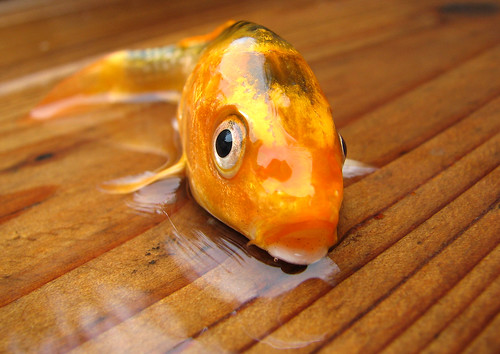
Acting ethical is far from being ethical, to be truly ethical suggests a genuine concern for how actions affect others despite the consequences that it may have on a personal level. Many ethical actions are taken for another reason... The Bottom Line... more commonly known as profit or money!
There are companies popping up everywhere employing Corporate Social Responsibility, their motivations in many cases are suspect to say the least but then faceless corporations and conglomerates are often regarded with disdain. However, the fact of the matter is that ethics are profitable in contemporary markets which have resulted in an ‘enlightened self-interest’ which Baker (The Journal of Mass Media Ethics, 1999) defines on the assumption that ‘one serves one’s self-interest by ethical behaviour’ as ‘businesses do well (financially) by doing good (ethically).’
One company arguably reaping the benefits of CSR (Corporate Social Responsibility) could be the massive corporation that is McDonald's, who have introduced organic milk, rainforest alliance certified coffee and free-range eggs among others! This is not an isolated case and is aimed to ease the consciences of new and existing consumers who are becoming more and more aware of our collective social responsibility in regards of the sourcing of consumables. With McDonald's themselves stating that ‘British consumers are increasingly interested in the quality, sourcing and ethics of the food and drink they buy’ (Ashbridge, 2007)it is clear that it is consumer needs that have driven them towards this move, arguably not because they want to make the world a better place.
But is that necessarily a bad thing? Is it unethical to make a company look to be ethical when fundamentally it’s a capitalist giant who has one main objective, to make money? Does it matter that the meals are often sensationally calorific or that they still offer such meals to children, specifically targeting them with toys and the such, when they are doing their bit to help cows and chickens be happier? Now in their defence they do offer healthy alternatives despite still typically being ‘accused by health campaigners in America and Europe of helping to cause an obesity epidemic’ (Walsh, 2006), ranking as the least ethical of high-profile corporations according to a public opinion poll. But then while the laying chickens may be free ranging until their hearts are content, the meat chickens aren’t afforded exactly the same courtesy... suppliers do have to meet ‘strict animal welfare standards’ (McDonald’s, 2010), what that entails is not exactly clear, but the words free-range do not appear. This could be a sly tactic to get McDonald’s associated with free-range, encouraging transference of this impression of high standards of welfare onto other products such as chicken, without actually having to make the full financial commitment.
But what I now have to ask is this, is that any different to me buying free-range eggs and not free-range chicken? I buy free-range eggs to make me feel better about my selfish consumerism, after all who are we to say chickens are there to be manipulated for our own gain be it meat or eggs? We have taken it upon ourselves as humans to declare ourselves this master race so surely the least we could do is farm the animals we eat respectfully and with as much kindness as is possible given you’re going to slaughter them. We aren’t much different from those faceless corporation and conglomerates; fundamentally we all act selfishly without concern for what we are taking from the world and how we treat it with our main concern being our own back pockets. Perhaps we have huge issues with such companies because we see part of ourselves, in them, that we hate.
Regardless, ultimately no corporation can continue without the support of consumers and so who is to blame if not us? If you’re not happy with the way someone is acting then its simple, don’t support them by consuming their products. And don’t whinge when they don’t listen to you while you continue to do so!
So in conclusion, yes of course the ethics are, perhaps, suspect... but is it unethical to try and represent yourself as ethical when you’re not? It must be is socially acceptable at least, as it is practiced across society by individuals, groups and companies alike. An in our society majority rule, so I certainly wouldn’t lose sleep from doing so.

